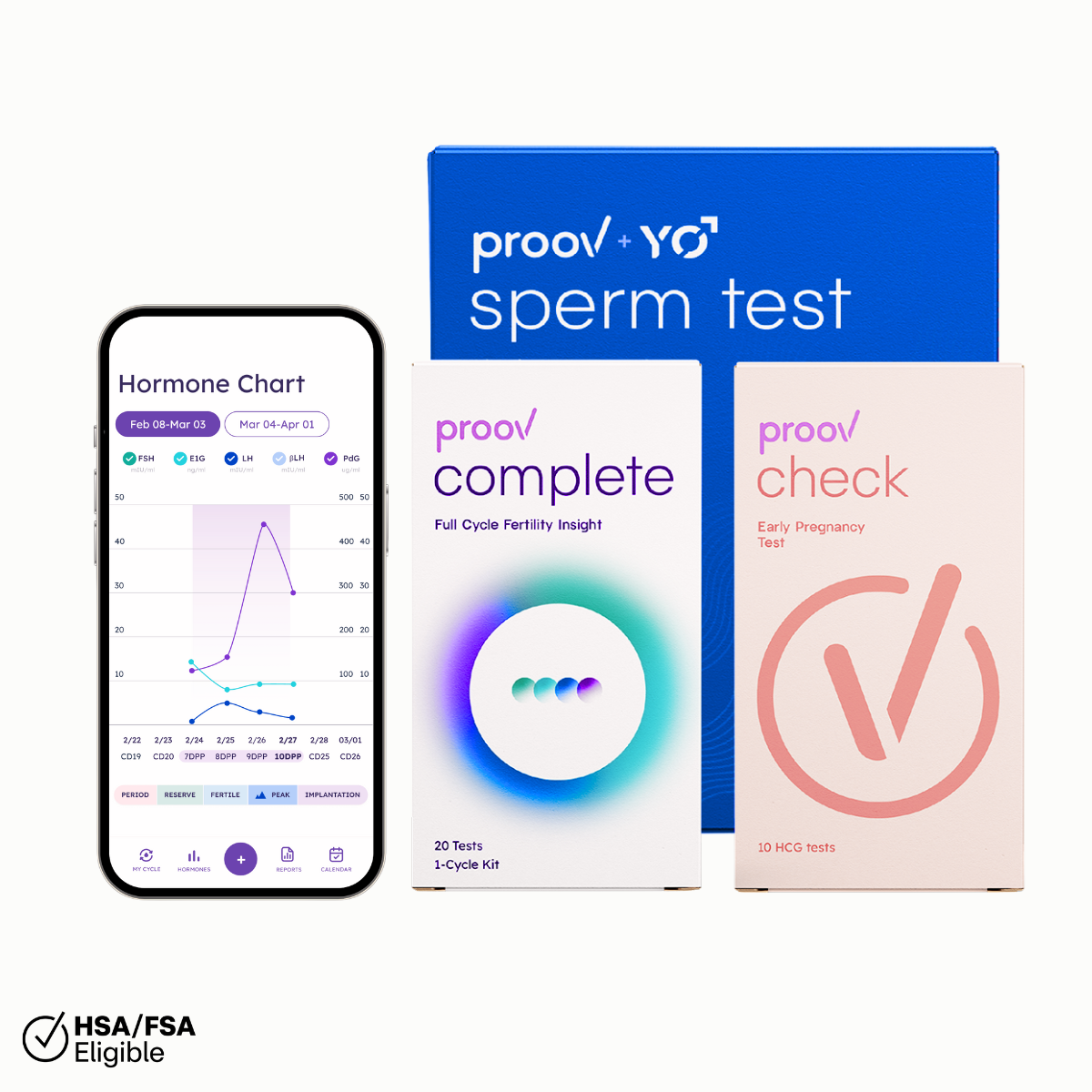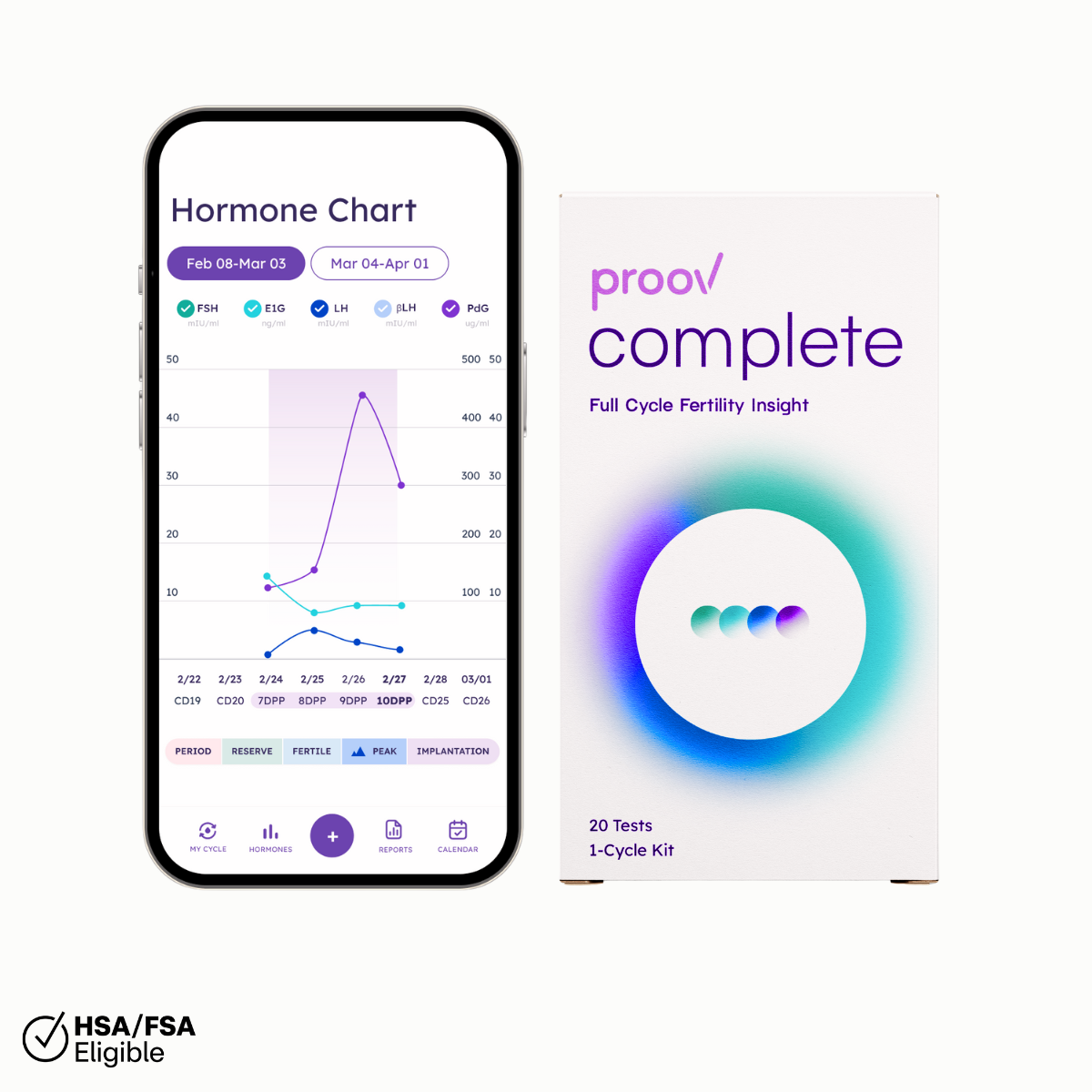Yes, 100% you can.
Here’s why…
How do at-home fertility tests work?
Women have fertility hormones circulating in their blood and urine. At-home fertility tests pick up on reproductive hormones in the urine. Basically, if you have the parts that make the hormones, and you pee, you can do at-home fertility tests.
If you’re not familiar with the pituitary gland, no problem. It’s just a pea-sized gland at the base of your brain that serves as “command central” for many hormonal processes, including that of ovulation. (Ovulation is the release of an egg from an ovary. You need that to be considered healthy and fertile.)
The two main pituitary hormones that help with ovulation are: Follicle Stimulating Hormone (FSH) and Luteinizing Hormone (LH).
FSH is secreted at the start of the ovulatory process, shortly after your period ends. It kind of “wakes up” a select group of follicles in your ovaries. (A follicle is simply a fluid-filled sac which houses an immature egg.)
This select group of follicles starts racing toward ovulation, getting bigger and bigger until one – the biggest – is ready to release a mature egg.
Just before release of the egg, the second pituitary hormone, LH, comes down from the brain to assist in the process. This is why LH is the hormone detected by ovulation predictor kits such as Proov Predict. An LH surge triggers the follicle to rupture and release the egg – this is when ovulation occurs!
We also have two hormones that come from the ovaries: estrogen and progesterone. Estrogen levels rise as our follicles grow and race towards ovulation. Progesterone levels rise after a successful ovulation, thereby confirming that an egg was available for conception.
At-home fertility tests, like Proov Complete, measure all 4 of these hormones (or their markers found in urine) to provide the fullest picture of your cycle and ovulation. This can help you understand factors that may be preventing you from getting pregnant.

Irregular Periods & Testing: What does your period tell you about fertility?
Your period, or menstruation, is a confirmation that the lining of your uterus thickened and then shed. In healthy cycles, this growth of the uterine lining is in response to rising estrogen levels from those growing follicles we were just talking about. The uterine lining grows in preparation for potential pregnancy. If pregnancy doesn’t occur, about two weeks after ovulation the lining will shed and you menstruate.
That’s in healthy cycles – but we’re talking irregular cycles that are constantly outside of the normal cycle length of 21 to 35 days. What’s going on there?
There are many reasons why your cycle may have an abnormal length. By now you probably realize that when we say cycle length we’re talking about the number of days from the first day of menstrual flow until the day before the next menstrual flow. Cycle length is not the number of days you bleed.
Cycles that are consistently less than 21 days long or greater than 35 days long can be due to several serious but manageable conditions including:
- PCOS or Polycystic Ovarian Syndrome
- Endometriosis
- Perimenopause, puberty, or breastfeeding (natural stages of life, not conditions)
- Stress including illness, change in diet or exercise, travel
- Anovulation (meaning lack of ovulation)
- Luteal Phase Deficiency or low progesterone levels after ovulation
- Coming off of birth control
None of the above possible reasons for an irregular cycle is a final verdict of infertility. Important to remember: all of the above listed subfertility issues have lots of management options.

Benefits of Home Fertility Tests if Your Period is Irregular
If you have irregular cycles, you may be wondering if you’re even ovulating. And, if so, then when? This is important for any woman trying to conceive to know, and probably even more important for women with irregular cycles.
Doing fertility tests right at home is a convenient way to take the first step towards knowledge of your ovulation, your fertility.
Women with irregular cycles already know something’s not right. They probably have troublesome symptoms like acne, mood changes, or cramps that are associated with the underlying cause of their irregularity. Testing the hormones that regulate your cycle gives you insight into the specific imbalance that can then be managed.
At-home fertility tests can help you determine whether or not to follow up with your doctor or further testing you’d like them to run. Testing for a few cycles in a row can tell you even more about whether your irregularity is due to stressors that are passing, or if you’re dealing with something chronic.
(P.S. We offer our Complete kit in a 2-cycle option specifically for this reason!)
Accuracy & Timing of Testing
There is a right and a wrong way to do at-home urinary hormone testing.
All of our testing kits provide detailed instructions for getting the most accurate results. When you test, i.e. during which phase of your cycle, varies with which hormone you are trying to learn about.
For example, FSH testing needs to occur early in your cycle, LH should be tested mid-cycle, and progesterone (or PdG) tests are most informative when done after ovulation.
If you’re planning on using Proov Complete, please note that this test must be started on cycle day 5 (or 5 days after the start of your period).
When to See a Doctor

Here are a few reasons to book an appointment with your doctor:
- You’re in pain. Pain is always a sign that something is wrong
- Abnormal bleeding. This means bleeding that is unusually heavy or prolonged, or bleeding that is occuring mid-cycle, after intercourse, or at another random time that is not your usual menstrual bleed.
- You might be pregnant. If you know when you ovulated because you did a test, and you are over 17 days past ovulation and haven’t started menstruating, it’s not a bad idea to do a home pregnancy test. Follow up with a doctor regardless of the result.
- You’ve been “trying” for over 12 months. If unprotected intercourse has been happening regularly for more than a year with no pregnancy, it’s time for you and your partner to see a doctor.
Ready to dive into fertility testing? Take our quiz to find the best test for you!













